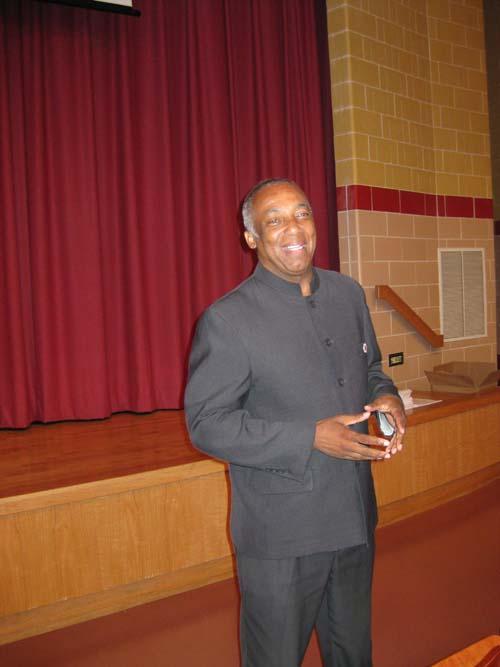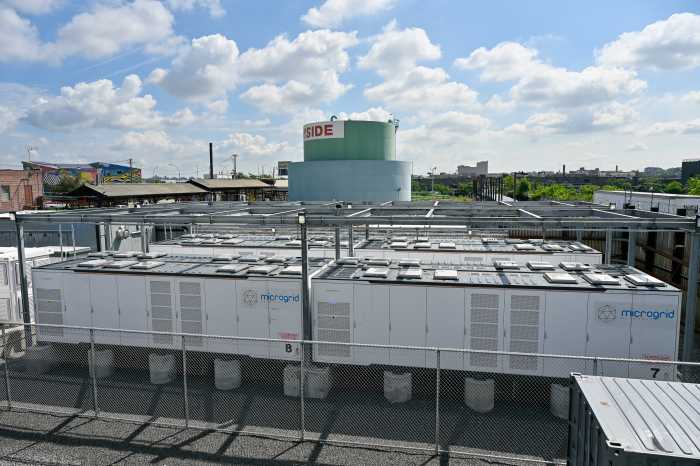Canarsie residents are saying a loud and clear “no” to a medical waste transfer facility proposed for East 100th Street and Farragut Road before their time runs out to do so.
The facility, proposed by CMW Industries, which currently runs an ambulette service on the site, would bring 15 tons of medical waste including formalin, formaldehyde and mercury through the neighborhood every day.
At a meeting on Monday at – held at P.S. 66 (845 E. 96th Street) – 80 people signed letters of opposition to the facility. The letters will be sent to the state Department of Environmental Conservation (DEC). According to Joy Simmons, legislative director for local Councilmember Charles Barron, the DEC has indicated that it will hold a public hearing only if it senses enough community opposition to the project.
The form letter states: “To place a RMW [Regulated Medical Waste] station in our community puts our residents at an alarmingly high risk of being exposed to hazardous waste, and poorer air quality due to increased truck traffic.”
The waste materials will be transported to the facility via 17 truck trips per day. This does not sit well with many community residents who feel their neighborhood has more than its fair share of air-quality problems.
“They can’t possibly want to put this here with the air quality we have in this neighborhood,” said Barron.
The DEC’s public comment period is scheduled to end September 19, so activists are trying to garner as much opposition as possible in such a short amount of time. In addition to Monday’s meeting, various civic groups – including the South Canarsie Civic Association, the Avenue L Merchants Association, the United Canarsie Civic Association, Man-Up, Operation POWER, and various block associations – are reaching out to those in their orbit, imploring them to write letters to the DEC.
“We want to have thousands of people mobilized on this issue,” said Simmons, “but we’re limited by time.”
Simmons said that opponents have asked DEC for at least a one-month extension to the public comment period.
In addition to drumming up community support, activists plan on retaining lawyers to mount a legal challenge to the plant.
Last month, DEC issued a notice announcing that CMW’s application for the facility was complete. This notice said that the project “will not have a significant impact on the environment.”
At a public hearing in January held as part of the DEC permitting process, Gershon Klein, CMW’s owner, said, “I don’t believe it’s dangerous. It may be dangerous, but not any more dangerous than Brookdale Hospital.”
But activists disagree.
“There’s going to be this medical waste and these chemicals in our community permanently – that’s a risk. What if there’s a fire, what if there’s flooding, what if there’s a truck accident?” said Simmons.
The form letter signed by residents points out that the facility is “next to homes, a senior citizen center, near schools, day care centers, and other vital community fixtures…Even careful handling according to regulations is an unacceptable risk.”
Added Barron: “For us, there’s no debate that this stuff is bad. No matter how fancy they make it sound, this is bad.”
In an impassioned speech, Barron urged residents “to put heat on the DEC” to hold a public hearing regardless of the findings of the public comment period. “I’ve never heard of another project where they say you don’t need a hearing,” he said.
He also encouraged opponents to keep fighting the facility “even if we have to lay down when the trucks come.”
Barbara Pierre-Louis, a representative for Assemblymember Nick Perry, said putting the facility in Canarsie “isn’t just environmental racism. It’s environmental classism. They know we’re hard-working people, so they expect us to be asleep when this happens.”
Michael Cohen, a representative for State Senator John Sampson, stressed the need for Canarsie residents “to show them that this [opposition] is not something that will go away in time. There’s always that initial wave of objection. But we have to make it a long-term objection.”
–Helen Klein contributed reporting to this story.























